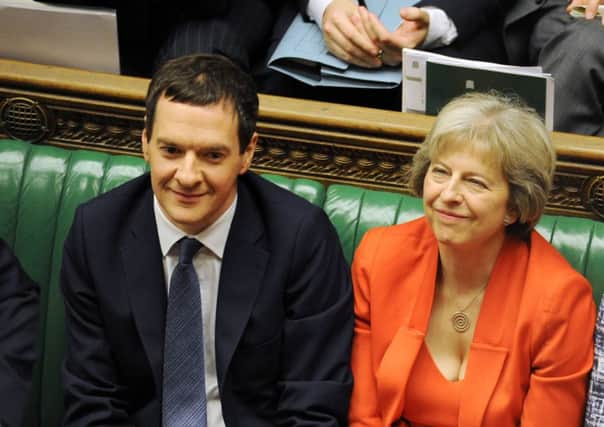Leader comment: Brexit forces Tories to change economic tack


While we do not know who the next Tory Prime Minister will be, the two most likely to succeed David Cameron, Theresa May and Michael Gove, have agreed with the Chancellor George Osborne who yesterday announced he was ditching the centrepiece of his austerity programme, the pledge for the nation to be in budget surplus by 2020.
The Chancellor said he was taking the move because of the “clear signs… of negative economic shock” post the vote for Brexit .
Advertisement
Hide AdAdvertisement
Hide AdThroughout his tenure as Chancellor, Mr Osborne has stuck rigidly to his austerity programme despite all the evidence that it was not kick-starting a stalling economy and amid much criticism. And although he has missed many targets, this opens up the possibility of the government increasing borrowing, perhaps to fund infrastructure projects to boost the economy. It is a sign of how catcylsmic he fears Brexit to be.
These unexpected consequences could be seen as a small comfort for some who were disappointed by the Brexit outcome.
When it comes to deciding just what the country will do in the immediate aftermath of the vote to leave the European Union, it seems Home Secretary Ms May is the front-runner and at this stage looks like the strongest and most experienced contender.
She and the Chancellor are singing from the same hymnsheet as she said her her campaign launch speech that there was a choice between further spending cuts, more borrowing and tax rises and said the priority must be to avoid tax increases. Certainly that does not rule out more cuts but it does point to greater government borrowing.
We do live in times where we seem to leap from jaw-dropping surprise to jaw-dropping surprise so it may seem that there is no